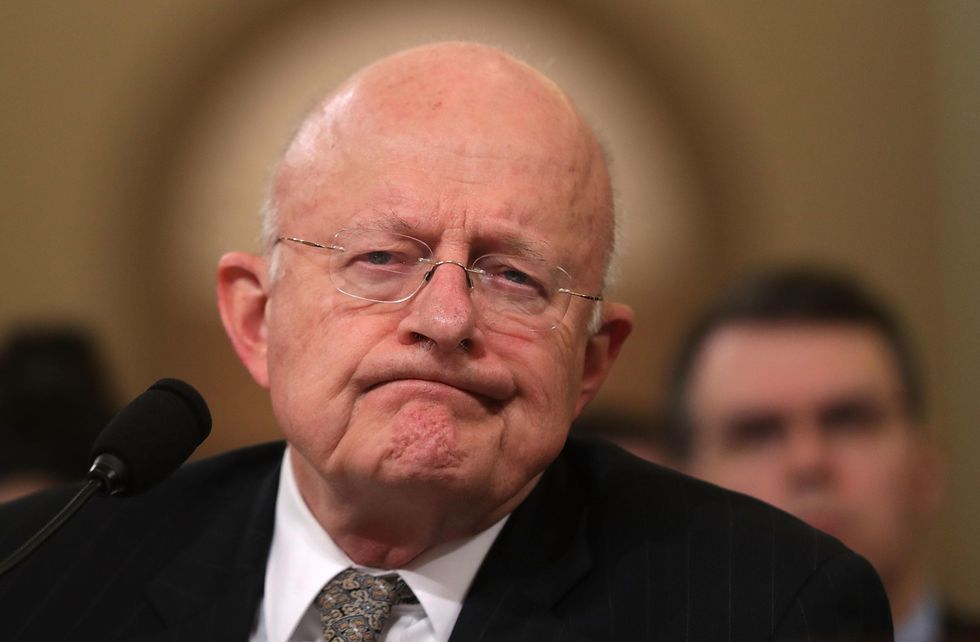James Clapper, who served as director of national intelligence in the Obama administration, gave “clearly erroneous” testimony to Congress about the National Security Agency’s mass surveillance techniques in 2013.
As of Monday, Clapper will face no criminal charges for his testimony.
What happened?
During a March 12, 2013, hearing before the Senate Intelligence Committee, Clapper denied the NSA was conducting mass surveillance and collecting data on millions of Americans.
Sen. Ron Wyden (D-Ore.) asked Clapper: "Does the NSA collect any type of data at all on millions or hundreds of millions of Americans?"
“No sir,” he responded. "Not wittingly. There are cases where they could inadvertently perhaps collect [intelligence], but not wittingly."
Of course, we now know Clapper wasn't accurate after Edward Snowden, a former NSA contractor, leaked millions of highly classified documents to show the extent of the NSA’s spying on Americans. Snowden’s stolen records proved that NSA was collecting phone data from Americans on a daily basis.
Clapper excused his inaccurate testimony in a June 2013 apology letter to Congress. He said he gave the “clearly erroneous” answer because he “simply didn’t think of” the phone data collection. He later told MSNBC he gave the "least untruthful” answer because Wyden asked a loaded question.
Despite even admitting his testimony was "erroneous," Clapper will not face any charges for his testimony.
Why no prosecution?
The Washington Examiner noted that lying to Congress is “rarely” prosecuted, which is exactly what will happen in Clapper’s case.
According to the Examiner, there are two criminal statutes related to lying to Congress and both have a five-year statute of limitations. That means unless the Department of Justice acts Monday morning, Clapper can never be prosecuted for his erroneous testimony.
Mark Zaid, a defense attorney who works on national security cases, explained to the Examiner why Clapper's case isn't necessarily "black or white."
He explained that Clapper "was faced with a difficult choice: Reveal classified information or respond in a [manner] that is not accurate." And although there isn't a "specific national security defense" for lying to Congress, Clapper could defend himself by arguing "that he didn't lie to Congress because that committee knew the information already."
How does Congress feel?
Lawmakers have said they feel Clapper should be prosecuted.
Rep. Thomas Massie (R-Ky.) told the Examiner: "He admitted to lying to Congress and was unremorseful and flippant about it. The integrity of our federal government is at stake because his behavior sets the standard for the entire intelligence community."
Rep. James Sensenbrenner (R-Wis.) added: "Political consideration should not affect the Department of Justice from pursuing this matter. Complete and truthful testimony is imperative for Congress to conduct effective oversight. It is clear from the evidence and Director Clapper’s own admission that he lied."




